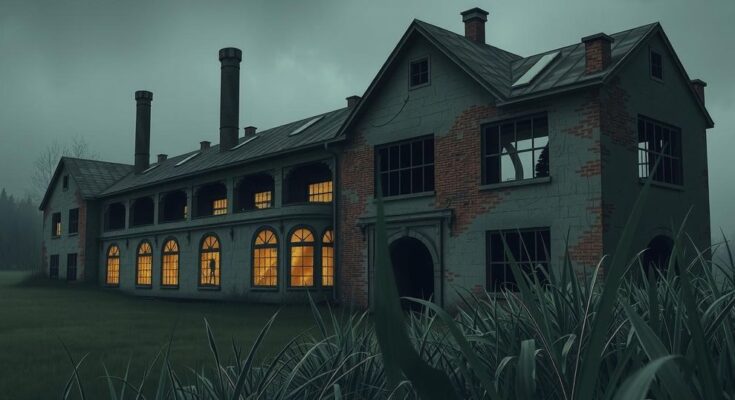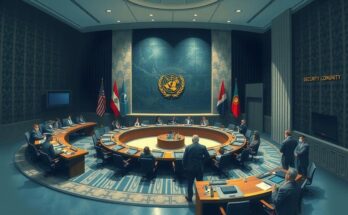The conflict in eastern Congo, driven by Rwandan-backed M23 rebels, has resulted in the closure of Heineken’s Bralima brewery, significantly impacting local businesses and the economy. Prices for essential goods are rising, with farmers unable to harvest crops, leading to a blocked economy. Heineken has suspended operations in affected areas, and the consequences extend to vital services such as water supply. Local bar owner Amani reflects the sentiment of many, indicating a need for peace and stability.
The Democratic Republic of Congo is witnessing an intensifying conflict, particularly in the eastern regions, profoundly affecting local businesses. Bukavu, a city now dominated by Rwandan-backed M23 rebels, witnesses bar owner Adolphe Amani exhausting his beer supply while preparing to close his establishment within days due to the cessation of deliveries from the Heineken-owned Bralima brewery. “We can’t hold out any longer,” Amani lamented, highlighting his inability to cover essential business expenses.
The M23 rebels, alleged to be supported by Rwandan forces as per U.N. findings, have demonstrated considerable military success, capturing significant territories, including Goma and Bukavu. This situation has precipitated international denunciation and sanctions against Rwanda. With ongoing hostilities, local economies are severely strained; essential goods are becoming expensive, and agricultural activities are hindered due to displacement caused by the fighting.
Merci Kalimbiro, a Bukavu resident, expressed the dire situation: “We can no longer access our fields or our bank accounts. The economy is blocked and paralyzed.” Both large and small enterprises are suffering; Heineken’s operations have been adversely affected, with looting at their facilities severely damaging assets and infrastructure.
Heineken emphasized the importance of a stable environment for businesses, with a spokesperson stating, “It will take some time to assess the damage.” Approximately 14% of Heineken’s revenue derives from its operations in Africa, predominantly in Congo, where four breweries employ about 1,000 people.
As fighting prevails, Amani has had to furlough over 30 employees at his bar and hotel due to lack of supplies. The conflict also threatens water supplies; Bralima’s operations are critical for the financial viability of the state utility REGIDESO, accounting for a significant portion of its revenue. Jean de Dieu Kwibuka Babwine of REGIDESO warned, “That would be a disaster” if operations were to cease due to a lack of water purification chemicals.
While some businesses resort to importing beer from Rwanda or Burundi, Amani prefers to await the reopening of Bralima, expressing loyalty to local production despite the crisis. He remarked, “I cannot consume products that come from Rwanda. They are our enemy.”
In summary, the ongoing conflict in eastern Congo continues to cripple the economy, with immediate impacts on local businesses, water supply, and employment, making an urgent resolution essential to restore stability and economic viability in the region.
The conflict in the Democratic Republic of Congo has precipitated severe economic consequences, particularly in eastern regions like Bukavu. Heineken’s brewery closure due to ongoing violence has led to business shutdowns, increasing prices for essential goods, and precarious employment situations for residents. The local population faces not only immediate economic hardship but also a potential public health crisis owing to threatened water supplies. A resolution to restore peace is urgently needed to stimulate economic recovery.
Original Source: www.straitstimes.com




